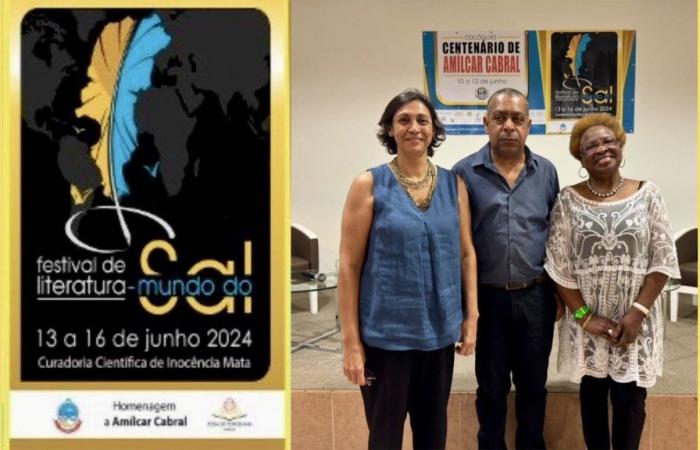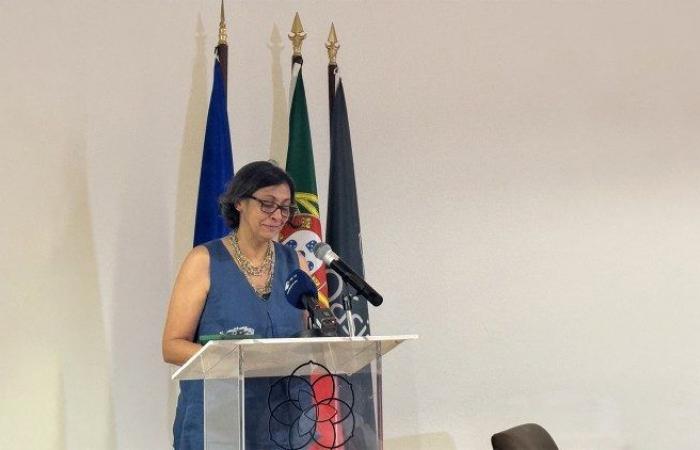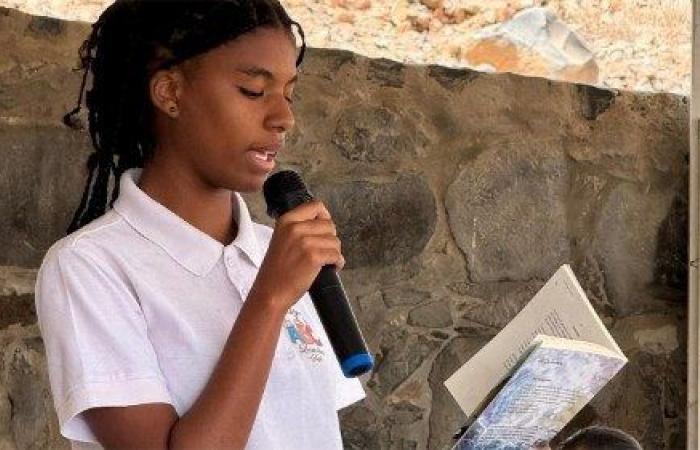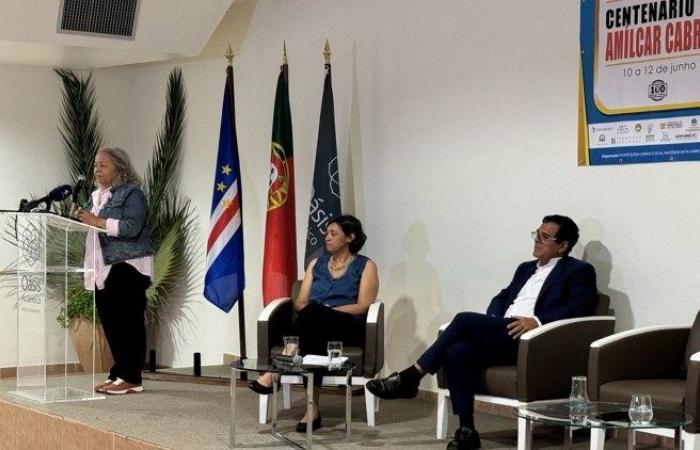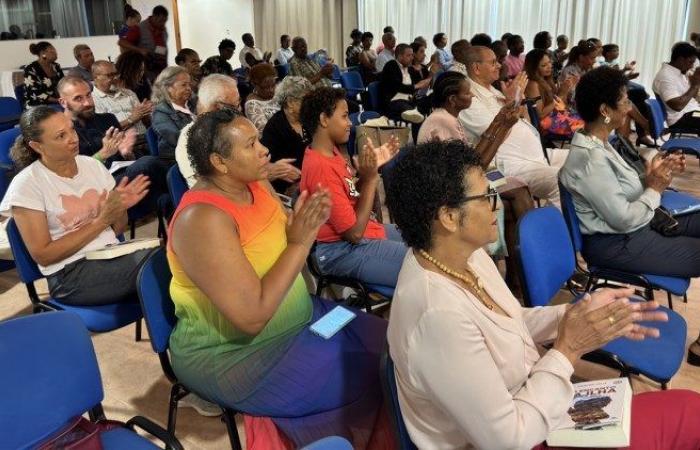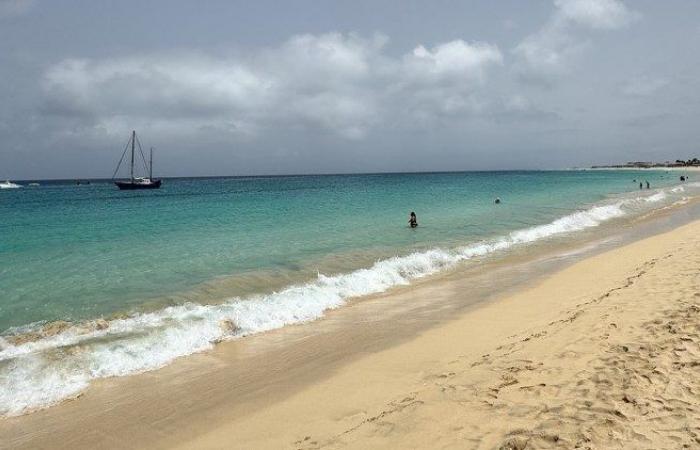The 2024 Sal World Literature Festival and the “Centenary of Amílcar Cabral” Symposium took place from June 10 to 16 on the island of Sal, Cape Verde. Organized by Rosa de Porcelana Editora and directed by Inocência Mata, the events featured more than fifteen debates and activities, bringing together hundreds of participants from around the world to discuss the literature and legacy of Amílcar Cabral.
Thulio Fonseca – Sal Island, Cape Verde
For seven consecutive days, the island of Sal, Cape Verde, was the scene of intense discussions and reflections, bringing together hundreds of participants from around the world during the symposium “Centenary Amílcar Cabral» and the Sal 2024 World Literature Festival. Organized by the Rosa de Porcelana publishing house and under the direction of Inocência Mata, these events gave rise to more than fifteen debates on literature and the heritage of ‘Amílcar Cabral.
Amílcar Cabral, a man of many facets
Márcia Souto, one of those responsible for the event, shared her perception of these days full of diverse and enriching activities. “This year was more difficult because the festival is already in its sixth edition, but the centennial conference was a bigger challenge for us. Many partners and participants came to attend the conferences and dialogues, which allowed us to draw up a very positive assessment», declared the organizer.
Highlighting the importance of Amílcar Cabral on the world stage, Márcia Souto indicated that the conference addressed his different facets, from politician to writer, including teacher and philosopher. “We have tried to distribute the topics according to the theme, and Rosa de Porcelana intends to continue making Cabral’s legacy known to everyone, especially to the younger generations“, she added.
Márcia Souto, during the closing session of the World Literature Festival of Sal 2024 and the Colloquium “Centenary of Amílcar Cabral”
Gratitude and continuity
At the closing of the festival, Angolan historian and poet Ana Paula Tavares reflected on Cabral’s teachings and the relevance of his figure today. “I feel a great sense of peace and gratitude for having been taken through the immense propositions and challenges presented here. To return to Cabral is to seek, through his teachings and his poetry, a way to return to practice“, said Ana Paula.
Poetry, a tool for peace
The internationally renowned African poet stressed the importance of making Cabral not only a historical figure, but also a living example of conciliation and popular participation. “At a time when the world is changing so rapidly and so sadly, it is fundamental to return to the idea of people’s participation and the meaning of borders. Cabral realized a utopia for the first time: the idea of two countries without traditional borders“, she said.
Ana Paula also spoke of poetry as a powerful tool for peace, quoting Pope Francis. “Poetry is a way of touching the heart of each person, “each” as the Pope said, on the path of preparation for peace and not for war. This is an easier way to use in schools and can be more effective in creating overall awareness of inclusion“.
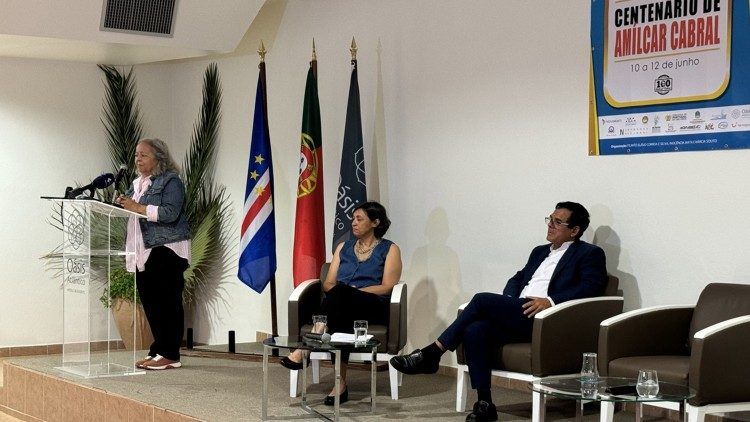
Thanks to Ana Paula Tavares on behalf of all event participants.
The impact on the new generation
Inocência Mata, curator of the festival, expressed satisfaction with the event and highlighted the importance of perpetuating Cabral’s legacy for new generations. “It was rewarding to work for over a year organizing this festival. I have experienced moments of great emotion listening to people who lived with Cabral and to scholars who study his work in depth. Cabral is not a well-known figure among the younger generation, and it is essential that his legacy be passed on“, she said.
Inocência Mata also highlighted the importance of contact with young students. “The professors were here and said that in fact, Cabral is not a known figure, he is not a studied figure. And I think it is very important that Cabral is known to the younger generation, so that his memory and his teachings are not lost“.
The future of the Sal World Literature Festival
Inocência Mata concluded by discussing future prospects: “Next year, with the celebration of the 50th anniversary of the independence of several Portuguese-speaking African countries, we will honor the writers of these countries. We will celebrate the political independence that cost our ancestors sweat and tears. It is essential that we work together to turn things around, reaffirming the importance of independence and honoring the writers who represent these values“.
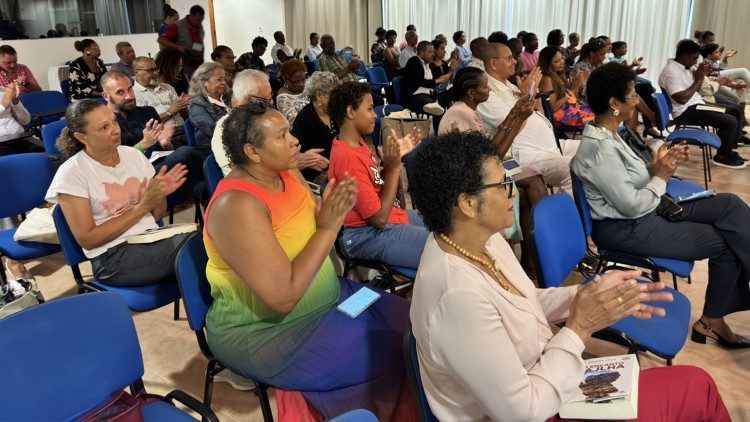
Participants in the closing session of the Sal 2024 World Literature Festival and the “Centenary of Amílcar Cabral” Colloquium
Last day details
On the last day of the event, the activities began with a round table on literary competitions and the visibility of authors, moderated by Márcia Souto and with the participation of Cláudio Garrudo, José Joaquim Cabral and Samira Lélis. The discussion focused on the importance of literary awards as a gateway to critical recognition and the possibility of entering the national and international literary canon.
The highlight of the day was the launch of the book “No Encanto da Ilha» by Samira Lélis, winner of the Lhana-2023 prize. The work was presented to those present with great enthusiasm, marking an important moment for the author and the festival participants.
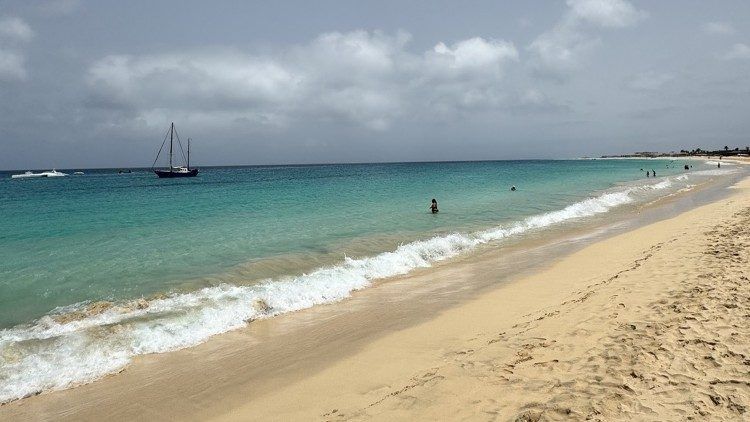
Santa Maria Beach, Sal Island, Cape Verde
An invitation to cultural tourism
The closing ceremony was marked by moving speeches and the presence of various literary and cultural personalities. Júlio Lopes dos Reis, Mayor of Sal, took the opportunity to invite everyone to visit the island of Sal. “The island of Sal is today a reference tourist center, located close to the European and African continents and just three and a half hours from Brazil. It is a place of leisure and contact, particularly with African and Cape Verdean culture.“, said Lopes dos Reis.
The events ended with a feeling of gratitude from everyone and a renewed commitment to continue promoting the literature and memory of personalities like Amílcar Cabral, thus strengthening the role of Cape Verde as a cultural and meeting point. literature on the world stage.

